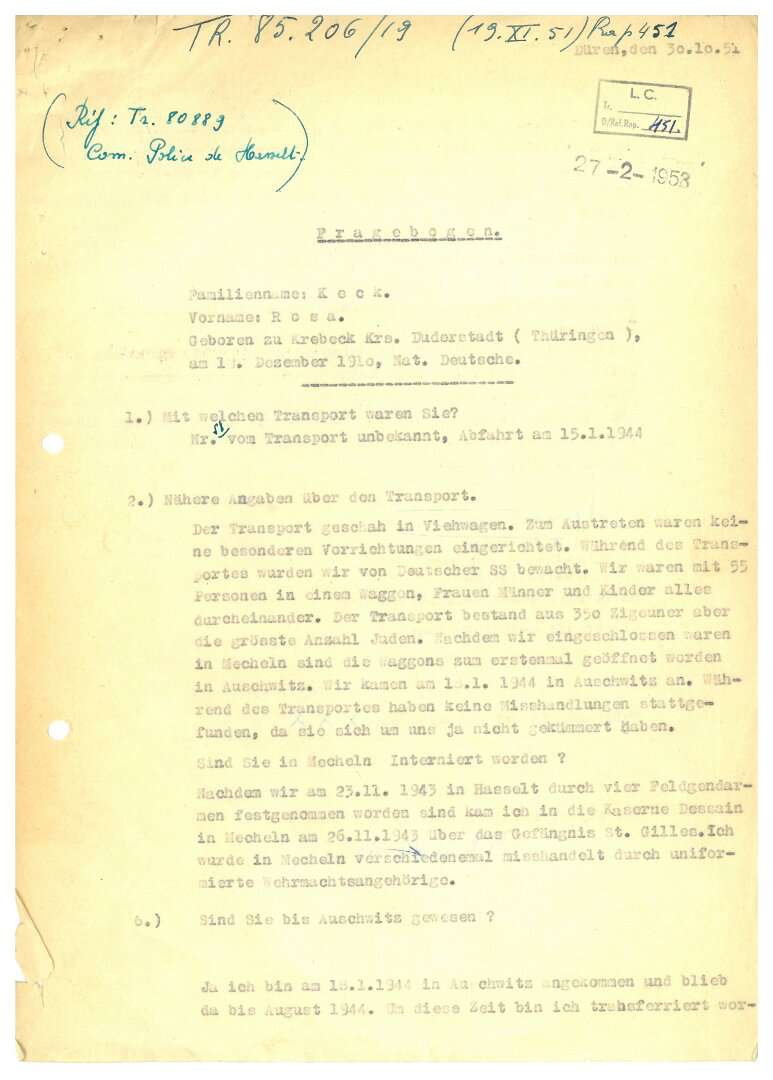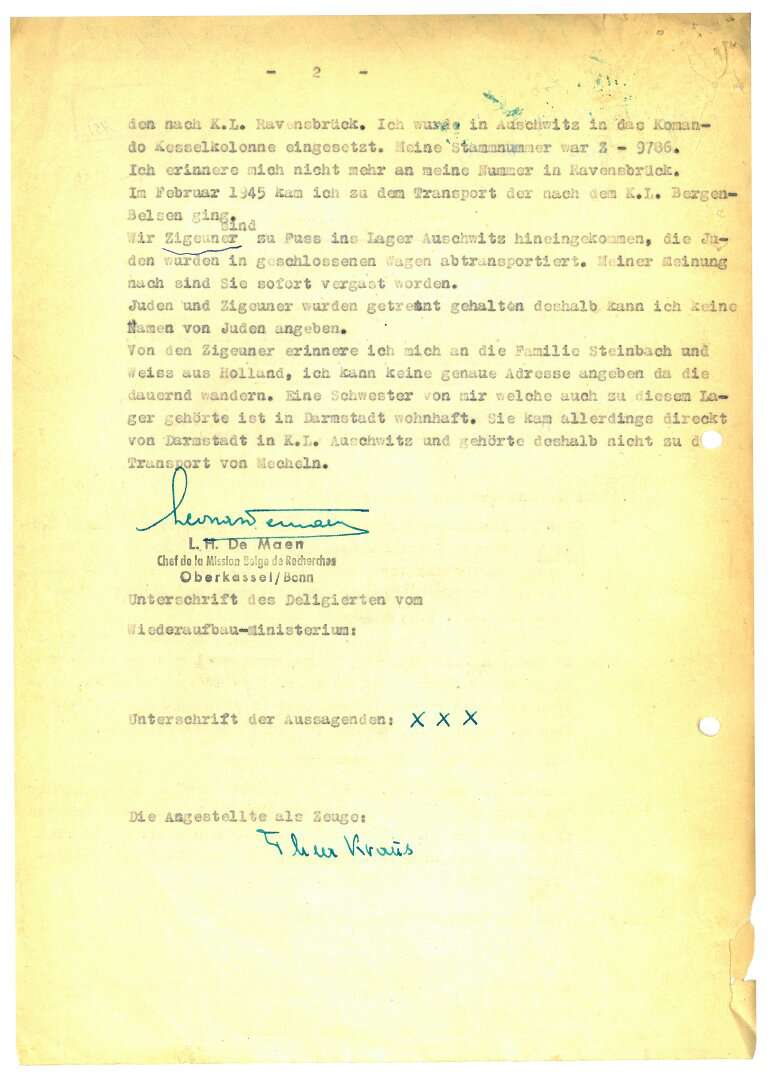Düren, 30.10.51
Questionnaire
Surname: Keck
First name: Rosa
Born in Krebeck, Duderstadt district (Thüringen),
on 19 December 1910, nationality: German
1.) In which transport were you?
No. of transport unknown. Departure on 15.1.1944
[supplemented in handwriting by ‘No. 58’]
2.) Further details about the transport.
The transport took place in cattle wagons. There was no lavatory to do your business. During the transport we were guarded by the German SS. There were 55 of us in a wagon, women, men and children all together. The transport was made up of 350 Sinti and Roma, but the largest number were Jews. After we had been locked up in Mechelen, the wagons were first opened in Auschwitz. We arrived in Auschwitz on 18.1.1944. There was no physical abuse during the transport because no one was assigned to mind us.
You were interned in Mechelen?
After we had been arrested by four military policemen in Hasselt on 23.11.1943, I was sent to St Gilles prison before arriving in the military barracks [Dossin] in Mechelen on 26.11.1943. In Mechelen I was abused several times by uniformed members of the Wehrmacht.
6.) Were you in Auschwitz?
Yes, I arrived in Auschwitz on 18.1.1944 and stayed there until August 1944. At around this time, I was transferred to Ravensbrück concentration camp. In Auschwitz I was deployed in the boiler detail. My serial number was Z-9786.
I cannot remember my number in Ravensbrück. In February 1945 I was put on the transport that went to Bergen-Belsen concentration camp.
We Sinti and Roma entered the Auschwitz camp on foot, the Jews were transported away in shut wagons. I believe they were gassed straight away.
Jews and Sinti and Roma were kept separate, that’s why I cannot tell you any of the names of the Jews.
Among the Sinti and Roma, I remember the family Steinbach and Weiss from Holland, I cannot give an exact address because they are constantly moving around. A sister of mine, who was also at this camp, is living in Darmstadt. But she was sent directly from Darmstadt to Auschwitz and therefore was not part of the transport from Mechelen.
[signature and stamp]
L.H. De Maen
Chef de la Mission Belge de Recherches
Oberkassel/Bonn
Signature of the delegate from the
Ministry for Reconstruction:
Signature of the witness:
Attestation by staff member:







